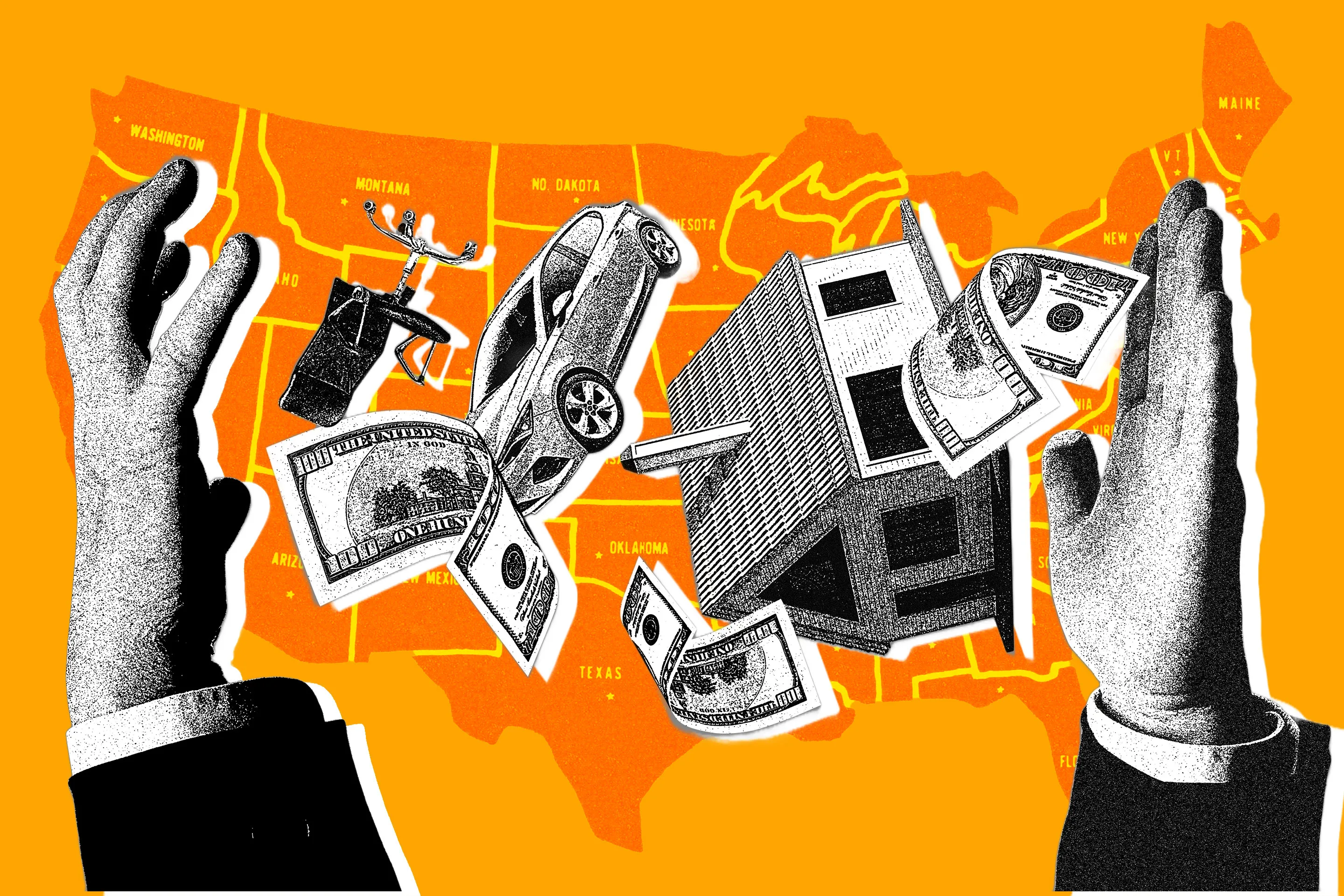As taxpayers and businesses make decisions about where to live and set up shop, state tax codes often play an important role. But given the complexity of state laws, comparing these differences is not always so easy.
A new ranking of state tax competitiveness from the think tank Tax Foundation aims to make this task easier by providing a comprehensive comparison of state tax policies and ranking them accordingly.
The rankings are based on more than 150 variables in five categories: individual income taxes; corporate taxes; sales, use and excise taxes; taxes on property and wealth; and unemployment insurance taxes.
While overall there are a lot of moving parts, there are a few common denominators among tax-friendly states. Four of the highest-ranked states (and six of the top 10) have no personal income tax. However, the lack of an income tax does not necessarily make the state more affordable. States that don’t levy income taxes have to offset those revenues in other areas, which many do, for example, through higher property taxes.
States that rank highest in the Tax Foundation’s analysis tend to combine low (or nonexistent) income taxes with relatively low sales and property taxes.
“The lack of a large tax is a common factor among many of the 10 largest states,” the Tax Foundation report said. “Every state levies property taxes and unemployment insurance taxes, but there are a few states that do without one or more of the major taxes: corporate income tax, individual income tax or sales tax.”
The three highest-ranking states—Wyoming, South Dakota, and Alaska, respectively—are largely rural and sparsely populated, which contributes to their favorable tax rates. These states have less need for complex infrastructure such as public transportation systems, and legislators in these states are interested in keeping taxes low to attract economic activity, investment and residents.
In addition to having no income tax, South Dakota and Wyoming have no corporate income tax, and Alaska has no state sales tax.
States rich in natural resources, such as oil-producing Alaska and Texas, have another advantage: They can raise revenue by taxing economic activity associated with those resources, making them less dependent on individual income taxes.
The top 10 also included some more populous states, such as Florida (4th) and Texas (6th). In these states, lawmakers are prioritizing low taxes, although this comes with trade-offs, such as cutting spending on government services and benefits.
States higher in the income tax rankings have low or no income taxes. A state’s sales tax ranking reflects rates and structure; for example, general sales taxes are assessed as neutral in the Tax Foundation’s formula. Its property tax ranking is calculated based on property taxes paid as a percentage of personal income.
Here are the top-ranked states in the 2025 State Tax Competitiveness Index:
1. Wyoming
- Personal income tax ranking: 1st place (tie)
- Tax ranking: 7th place
- Property tax ranking: 44th place
2. South Dakota
- Personal income tax ranking: 1st place (tie)
- Tax ranking: 31st place
- Property tax ranking: 10th place
3. Alaska
- Personal income tax ranking: 1st place (tie)
- Tax ranking: 5th place
- Property tax rank: 30th place
4. Florida
- Personal income tax ranking: 1st place (tie)
- Tax ranking: 14th place
- Property tax ranking: 21st place
5. Montana
- Rank for personal income tax: 10th place
- Tax rank: 3rd place
- Property tax ranking: 18th place
6. New Hampshire
- Rank for personal income tax: 12th place
- Tax rank: 1st
- Property tax ranking: 39th place
7. Texas
- Personal income tax ranking: 1st place (tie)
- Tax ranking: 36th place
- Property tax rank: 40th place
8. Tennessee
- Personal income tax ranking: 1st place (tie)
- Tax ranking: 47th place
- Property tax ranking: 33rd place
9. North Dakota
- Rank for personal income tax: 17th place
- Tax ranking: 15th place
- Property tax ranking: 4th
10. Indiana
- Rank for personal income tax: 16th place
- Tax ranking: 17th place
- Property tax ranking: 5th place
More money:
Top 5 Companies for Tax Benefits 2024
401(k) contribution limits are getting a ‘super’ change next year.
Tax Rates for 2025: IRS Increases Income Thresholds and Standard Deductions
